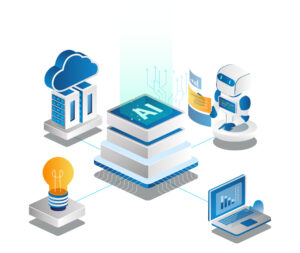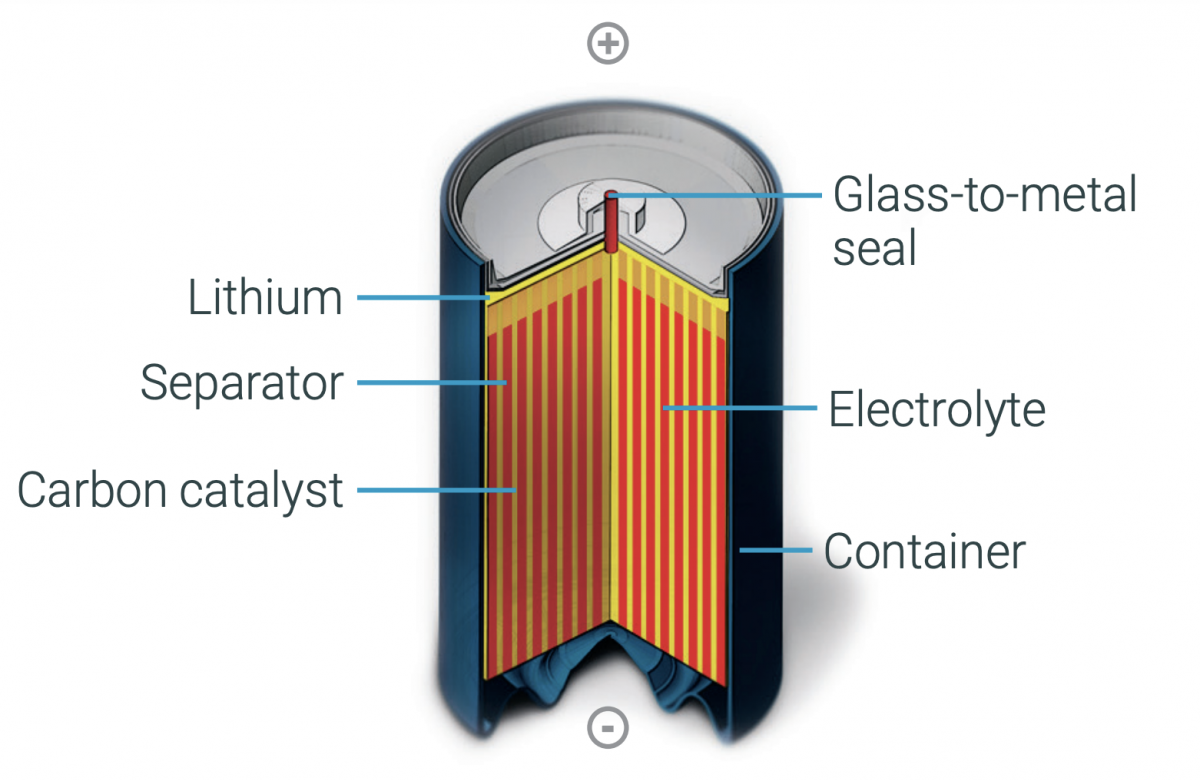The twenty-first century has ushered in an era of unprecedented technological advancements, transforming virtually every aspect of human life. From health sciences to social sciences, geographical sciences to space exploration, and from mathematical analysis to revolutionary technological advancements— the dimension of every science and field of knowledge has changed remarkably in many ways.
Information technology
Information Technology platforms are revolutionizing communication and cloud computing has facilitated in diverse domains. Information technology has taken over the industrial, educational, and health sectors. It has transformed the ways of communication and tasks we perform. IT has revolutionized remarkably, propelling humanity into an era of innovative technologies.1
Artificial Intelligence
Artificial Intelligence and Machine Learning have emerged as game changers and they have been recently integrated into every field of knowledge, including healthcare, finance, transportation, and industry. Artificial intelligence enables computers to mimic human intelligence. With that, the machines perform better than before, more efficiently and conveniently more or less like humans do.1
Over the past few years, AI has been trying to pave its way smoothly into our lives and we are, somehow, getting dependent upon it. For instance, programming professionals have begun using GitHub’s Copilot, an AI tool that turns natural language prompts into coding sequences to expedite the programming process. Writers are using Open AI’s GPT-3 or AI Gemini or similar autoregressive language models that use deep learning to generate human-like content.

A few years ago, AI programs were in their infancy. Now they have matured overwhelmingly as becoming ubiquitous tools in coding and writing. Novel techniques like deep learning, can run complex AI models to solve the most difficult problems. The ones who work in technology-centric fields are quite well aware of the explosive capabilities of Artificial Intelligence, but the layman, at large is still completely unaware of the AI’s depth and potential. 2
The current state of AI
In this technology-dominated era, the maturity level of AI is far beyond control where it has been largely integrated into various industries and sectors increasing its efficacy to the next level. Companies widely incorporate AI tools for recommendation systems, fraud detection in monetary systems, predictive analysis, risk assessment, algorithmic trading, and process automation.3
Novel Technologies in Global Health
- Disease Diagnostics
AI like all other fields, has also revolutionized health care and the medical industry to some extent. Disease diagnostics and drug designing have successfully incorporated viable AI tools for better efficacy and quick results.3
Huge amounts of medical data are used to identify several patterns for accurate predictions. Early detection of diseases by improving diagnostic accuracy and providing personalized treatment plans have largely become realistic and achievable goals with AI and machine learning algorithms.7
- Telemedicine
Telemedicine, wearable health gadgets, body-worn sensors, and monitors can provide data about the patient to physicians at a distance of miles. This novel technology has enabled physicians to conduct their trials and procedures beyond their geographic limits.
In this situation, patients require a personal device or gadget to facilitate their audio-video communication with physicians. Assistant specialist technicians are responsible for implementing this technology on its usage and resolving any errors that may arise during check-ups or follow-ups.4
Telemedicine does not replace face-to-face consultation when needed but instead complements it.6
- Advancements in biotechnology
Advances in biotechnology and genomics have led to personalized medicine, where treatments have taken a revolutionary turn. Mass production of medicine and required food products is now possible due to the use of cutting-edge technology in genetics. GM (genetically modified) crops, insulin, cancer treatment drugs, and stem cell technology are no longer a dream due to advancements in biotechnology.4

- Bioprinting
Bioprinting has already set its firm ground in the biotech industry. Specialized 3D printers have made it possible to synthesize biomaterials like organs from cells or tissues. The principle of bioprinting is very similar to traditional 3D printing. Organic substances are superimposed as different layers until a three-dimensional object is created.5
- Robotics and Automation in Surgeries
So far, we have an idea of robots performing multiple tasks in the corporate sector, but now, with deep machine learning and AI tools, robots have replaced direct human involvement in health care, medicine, and even surgeries. Surgical procedures are now possible with robotic-assisted technologies. Surgeons can use robots to perform delicate, minimally invasive operations with rapid recovery, reduced complications, and improved outcomes for patients.7
Advancements in Environmental Sciences
Innovations in the use of Renewable Energy like solar, wind, and other sources are reducing the use of fossil fuels, addressing good impacts on climate change.
Innovative Ideas for Renewable Energy Resources
Environmental researchers and companies strive to build more efficient solar power panels, and wind turbines, and reform existing technologies, to find new ways to harness clean energy. The prototypes of a few alternatives like bladeless wind turbines and flying wind devices are underway and the formulation of renewable technologies in hydropower, flying turbines, float Voltaics, and floating solar farms are also in consideration.8
- Lithium Glass batteries
Moreover, apart from capturing renewable energy, exciting research has been made in storage technologies through the development of lithium glass batteries that will pave ways to mitigate the problem of intermittent renewable energy and propel the industry forward.8

Space Sciences
Space Exploration Companies are making space travel more affordable and accessible, with groundbreaking discoveries and visionary ambitions. Recently, the burst of cosmic discoveries after the incorporation of JWST (James Webb Space Telescope) has opened the wide frontiers of space research and space travel.
Quantum Computing
Quantum technology exploits the quantum properties i.e. entanglement, superposition, and teleportation exhibited by the sub-atomic particles. Quantum computing uses the principles of quantum mechanics to provide promising ways to solve complex problems that classical computers or even today’s supercomputers cannot solve. Quantum technology is also used to develop quantum navigation systems, cryptography, and communication systems. 9

Blockchain Technology
Another breakthrough in streamlining monetary systems and ensuring transparent, secure, and decentralized mechanisms. This technology has gained significant importance because it offers an immutable ledger to ensure secure transactions, smart contracts, and data storage.
Formerly it was known due to its association with cryptocurrencies like Bitcoin. Now it is widely known to navigate the proficiency of finance industries, health care, voting machinery, and supply chain to the next level by eliminating intermediaries reducing fraud, and increasing transparency.10
Technological achievements and milestones have miraculously transformed the way we live, work, and interact with the world around us. Artificial Intelligence has surpassed most of our natural capacities, the Internet of Things has removed the concept of distance, Cloud computing, Blockchain technology, and quantum mechanics have turned the world upside down, presenting new possibilities and challenges. All these advanced technologies are redefining our lives and shaping our future on a digital basis.
References:
- https://www.longdom.org/open-access/recent-advancements-in-information-technology-and-its-applications-101701.html
- https://www.forbes.com/sites/forbesbusinesscouncil/2022/10/07/recent-advancements-in-artificial-intelligence/
- https://www.linkedin.com/pulse/technological-advancement-artificial-intelligence-jiarawattanakul/
- https://averyfairbank.com/how-are-new-digital-innovations-impacting-the-biotechnology-industry/
- https://www.yaveon.com/en/about-yaveon/blog/digitalization-biotechnology/
- https://www.news-medical.net/health/What-is-Telemedicine.aspx
- https://www.orientsoftware.com/blog/impact-of-technology-on-healthcare/
- https://www.nesfircroft.com/resources/blog/the-future-of-renewables-innovations-in-energy-technology/
- https://www.paconsulting.com/insights/what-is-quantum-technology
More by this author: The Challenges of Scientific Research in the Modern Era

Muniba Usman is a high school teacher and teaching trainer by profession. She has a BS (HONS) in Microbiology and a diploma in Textile and Fashion design. She has a strong passion for research, arts, reading and writing. She has written many scientific articles and fiction stories for children.

